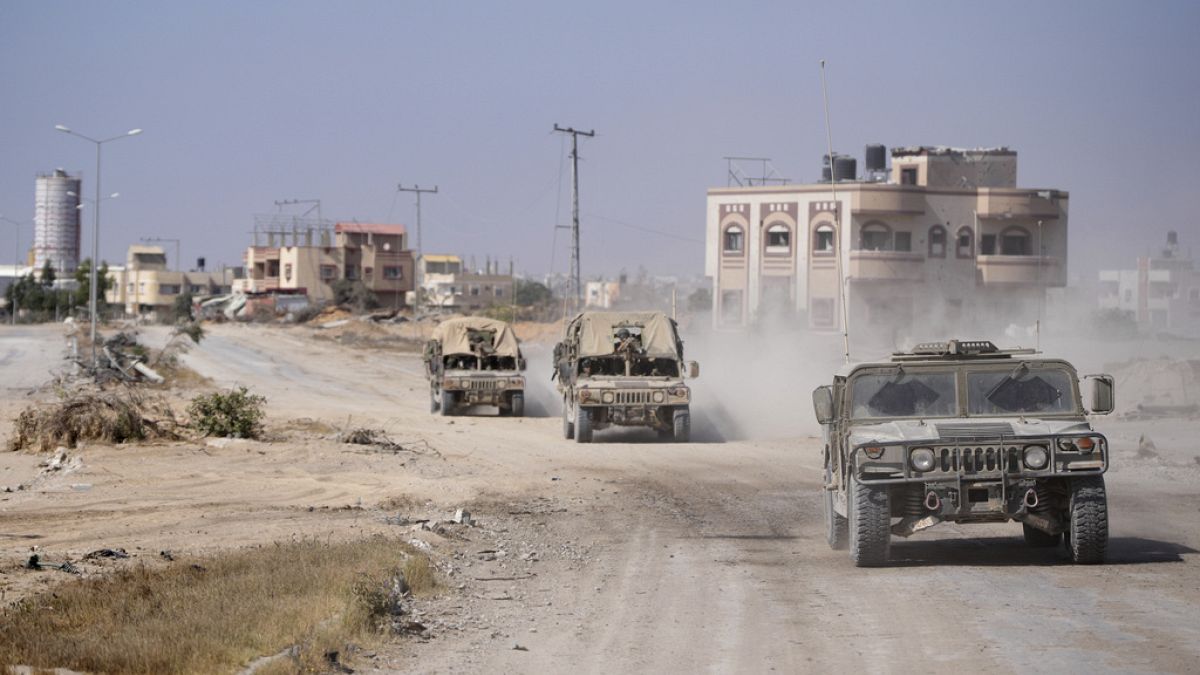

In recent days, the international landscape has been buffeted by multiple conflicts and humanitarian responses that call for both attention and empathy. From escalating military actions to coordinated evacuations, these events serve as a reminder of the complex tapestry of current global affairs.
In a somber development in the ongoing Israel-Hamas conflict, an explosive device attached to an armored vehicle resulted in the tragic loss of seven Israeli soldiers in southern Gaza. This incident adds to the sobering tally of over 860 Israeli soldiers who have perished since hostilities began on October 7, 2023. The conflict continues to affect numerous lives, raising both regional tensions and global concerns over security and peace.
Simultaneously, new findings in Ukraine indicate the evolving nature of warfare technology. Experts analyzing drone debris suggest the presence of new technology, potentially linked to Iran. Although the labels on recovered drones are not definitive proof, they share characteristics with how Iranian equipment is typically marked. This development points to an intricate network of global military alliances and innovations that influence ongoing conflicts.
As tensions mount, global efforts to ensure citizen safety have seen positive results. Both France and Indonesia have successfully evacuated their citizens stranded amid growing regional tensions. Over one hundred French nationals were airlifted from Israel to Cyprus, while a similar number of Indonesian citizens were brought back from Iran. These evacuations exemplify timely international cooperation aimed at safeguarding human lives amid uncertainty.
In another region, the aftermath of U.S. airstrikes on Iranian facilities has become a point of debate. A recent U.S. intelligence report suggests these strikes, contrary to previously optimistic official statements, may have only hampered Iran’s nuclear capabilities by a few months. This report challenges earlier assertions and highlights the often-complex outcomes of military interventions.
Adding to the layered geopolitical landscape, the Pentagon has launched an investigation into potential leaks related to the strikes on Iran. Defense Secretary Pete Hegseth confirmed the ongoing probe, underscoring the sensitivity and pivotal nature of intelligence in shaping military and diplomatic strategies.
Meanwhile, in Sudan, tragedy struck with a devastating attack on al-Mujlad hospital in West Kordofan. The World Health Organization condemned the incident, which claimed more than 40 civilian lives, including health workers and children. This act further exacerbates an already dire humanitarian crisis in Sudan, which remains embroiled in a fierce civil war between government forces and the Rapid Support Forces. The attack contributes to what is described as the world’s largest humanitarian crisis at present, catalyzing calls for urgent aid and conflict resolution.
In these turbulent times, the global community finds itself at a crossroads, where the pursuit of peace and humanitarian support must stand alongside advancing diplomatic dialogues. The importance of fostering resilience and understanding, across borders and within nations, remains ever crucial in navigating today’s intertwined and challenging realities.
Source: {link}
